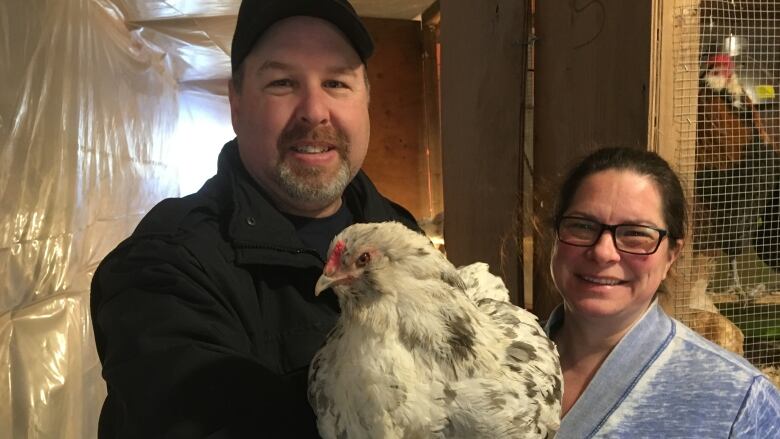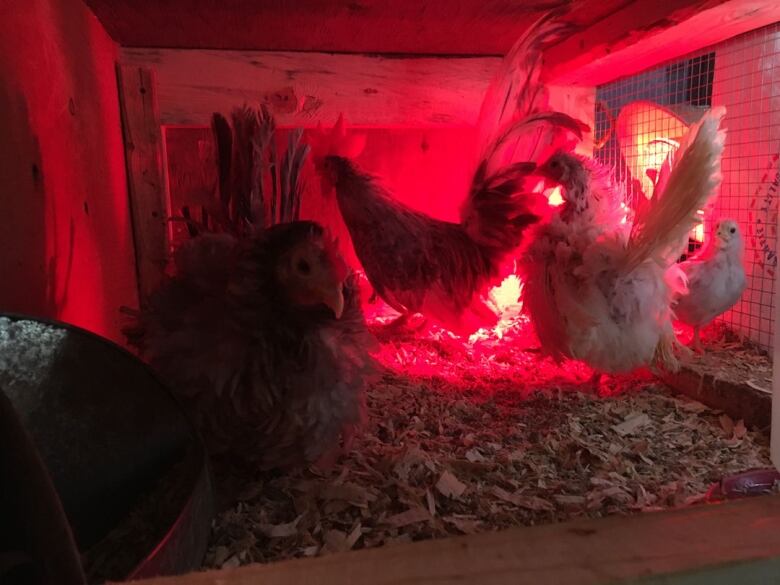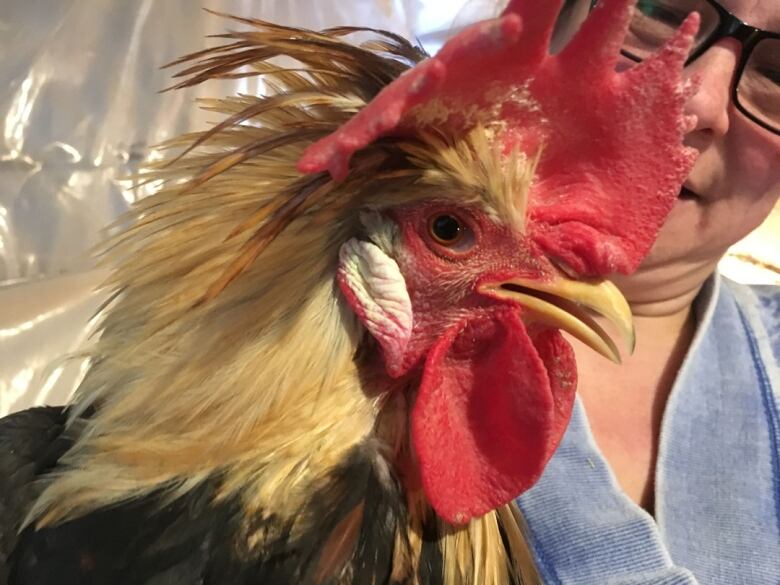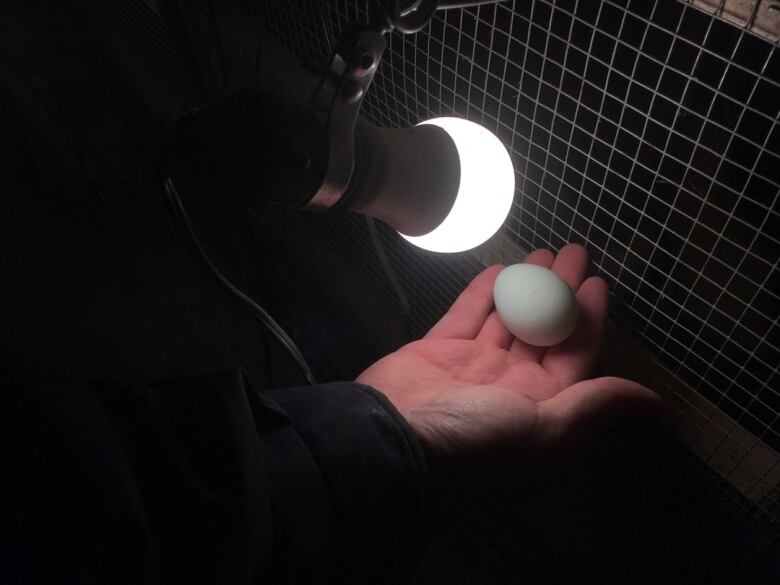Makin' eggs: Gatineau chicken farmers offer scoop on running backyard coop
Gatineau council to consider proposal to allow 50 chicken coops in the city

Chicken farmer Erik Young has some advice for people in Gatineau thinking about building their own backyard coops: don't expect your little red hen to do all of the work.
"If you are just going to build the coop and leave them in the backyard ... chickens, they will need looking after all of the time, so if you can't look after your chickens, don't get some," said Young.
Young and his wife Julie Leblanc run a chicken farm in an area of Gatineau zoned for agriculture, but soon they and other farmers may be supplying hens to a whole new breed of egg enthusiast.
Gatineau city council is considering a proposal to allow urban chickens and bees as a pilot project.
The proposal would allow 10 community-based urban chicken coops, 40 chicken coops at individual urban homes and 15 beekeeping projects, as long as they were for recreational reasons, educational reasons or their products were only for personal consumption.
People running the coops would have to follow city regulations, including limiting urban coops to just three hens.

Keep coops warm, but not stinky
Young said while he and his wife are crazy about chickens their farm is, in fact, called Gatineau Crazy Chicken Ladies he recognizes they aren't for everyone.
People who can't take the time to care for the chickens, or people who travel frequently, may want to think twice before applying to set up a coop, he said.
"They are like any other animals, you have to take care of them," he said. "Just like a pet or dog or something you have to clean up after them or you will get the smell."
Chickens will need a coop to protect them from the wind and cold, and aheatinglamp will be especially important to keep the coop's water from freezing. The coop is also needed to protect fromdangerous predators of both the birds and the eggs, including skunks, raccoons and foxes, said Young.
Leblanc said urban settings also introduce a whole different set of potential predators.
"People downtown will also have to watch out for the neighbour's dog oh, yes," she said, as well as cats and, in some neighbourhoods, rats.

No noisy roosters
The Gatineau proposal doesn't allow for backyard coop owners to have roosters, something that will come as a relief to neighbours who value their sleep.
But there is a sunny side: if treated right, backyard hens can be a steady supplier of eggs. Depending on the breed, a hen can produce 220 to 260 eggs a year, said Young.
"It is fun, it is interesting, you get fresh eggs, you know where it's coming from, you know what your chicken has eaten no hormones no nothing they are really good quality eggs," he said.
Gatineau city council votes on the backyard coop proposal on Feb. 14.
Ottawa doesn't currently allow urban chickens, but they are allowed in Kingston.













_(720p).jpg)


 OFFICIAL HD MUSIC VIDEO.jpg)
.jpg)



























































































